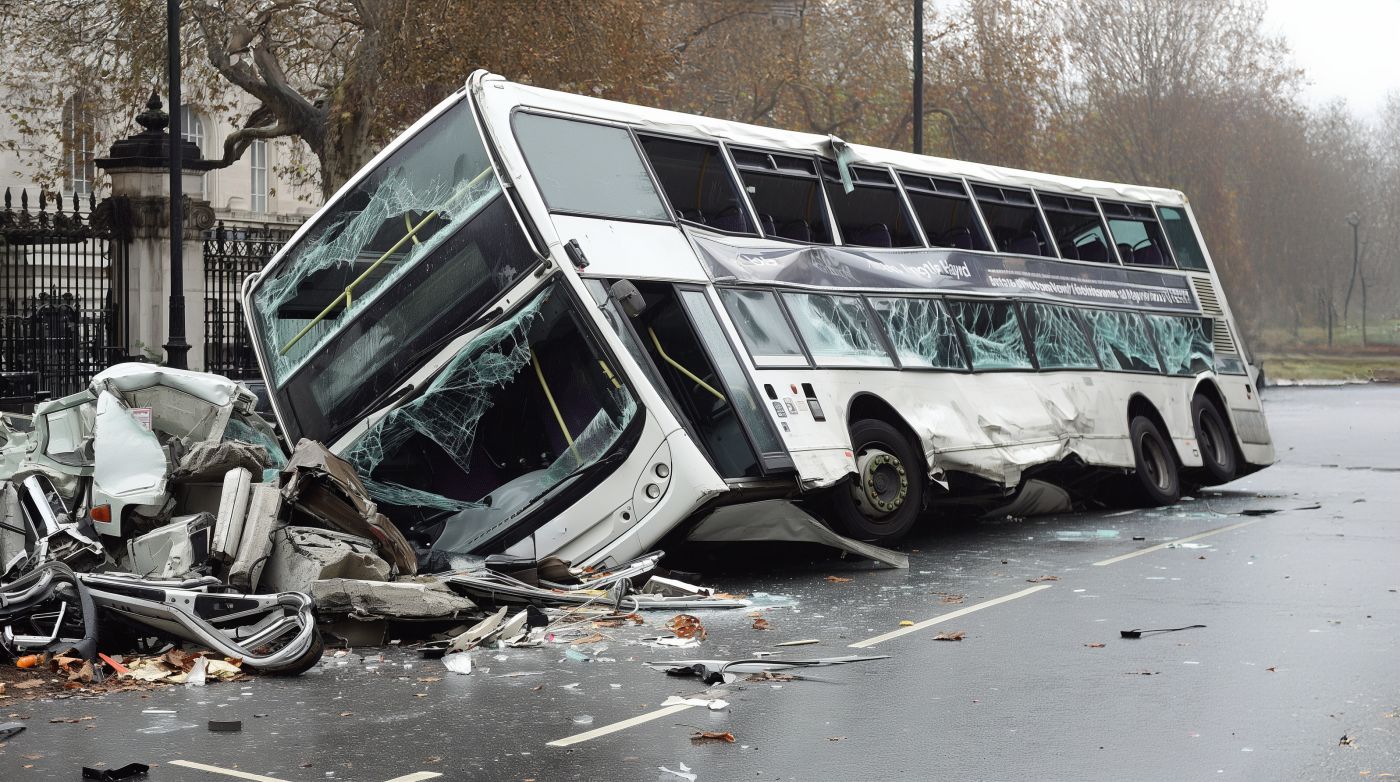A car accident can leave you with painful injuries and if it was not your fault, you can file a lawsuit against the at-fault driver. Illinois is an at-fault insurance state which means you’ll file your compensation claim with the other driver’s insurance company.
However, things may quickly become more complicated if you do not have a car insurance policy. Illinois law requires all drivers to purchase insurance that meets the minimum requirements. If you do not have auto insurance, you may wonder how this can affect your case.
At the Law Office of Jack M. Shapiro, we understand the complications that arise when you’re involved in a car accident without insurance, especially if the other driver is at fault. Our experienced team provides legal support to navigate these challenging situations. In this blog post, you will learn more about automobile insurance policies and requirements as well as what to do about an injury after a car accident with no insurance.
Legal Implications for Driving Without Insurance Coverage in Illinois
When you drive without coverage from an insurance company, you put yourself in a position to face legal consequences. Even though you didn’t cause the car accident, the law requires you to have minimal coverage.
You’ll face fines that range anywhere from $500 to $1,000. As an uninsured driver, you will also face potential driver’s license suspension for this offense. Your vehicle may be impounded, and you will be required to carry an SR-22 insurance certificate verifying your insurance standing for three years.
Some people forget to pay their premiums to their own insurance company or it slips their mind when it comes time for car insurance renewal. Others may struggle to pay insurance rates, though there are ways to negotiate payments to keep your car insurance.
In the past, it was easier for drivers to escape undetected while driving without insurance. Now with new technology in the form of automatic license plate recognition, a police officer no longer needs to make a traffic stop to find an uninsured driver. They can simply scan the plate and see whether or not a driver has auto insurance.
Understanding Insurance Coverage
In Illinois, you are required to have bodily injury liability insurance at $25,000 per person and $50,000 bodily injury per accident. These minimums also specify that you need $20,000 for property damage per person.
This liability coverage is mandated by state law, and those without liability insurance could face the previously mentioned penalties. It does not matter if you are not the at-fault driver in the car crash.
Uninsured Motorist Coverage and Underinsured Motorist Coverage
You are also required to carry uninsured (UM) and underinsured motorist coverage (UIM), which is meant to protect you in situations with uninsured drivers. The minimums for UM coverage and UIM coverage are $25,000 per person and $50,000 per accident.
Naturally, this will help you if you get into an accident and the at-fault driver is not covered. Uninsured coverage protects an insured driver who gets in a crash with a driver without insurance, allowing them to file an uninsured motorist claim. Underinsured motorist coverage offsets the costs when the at-fault driver only has the minimum collision coverage required.
Filing a Claim for a Car Accident with the At-Fault Driver’s Insurance Company
You might not be the at-fault driver but you will still want to speak with a personal injury attorney before you attempt to take matters into your own hands with the insurance company for the other driver. While not having insurance cannot cause a car accident, it could leave you vulnerable to potential legal repercussions.
Another unwelcome surprise may be that the other driver may not have insurance or not enough of it to cover your medical bills from the vehicle accident. How much insurance the other driver has will play an important role.
Whether you have coverage from your insurance company or not, you can file a personal injury lawsuit if the claims process is fruitless as a method to recover compensation for your injuries and damages. A car accident lawyer can help you understand your legal options.
Modified Comparative Negligence for Each Party Involved in an Auto Accident
When you are involved in an accident, you must notify your insurance company. This is to give them notice of a potential third-party claim. It does not matter if you were not at fault but it is generally a part of every policy.
If you do not have insurance ] because your coverage was dropped, you forgot to pay, or you thought you were covered but the policy lapsed, you will want to consult an attorney first. Since the at-fault party will be responsible for paying for injuries and damages, the other insurance company is the one you will contact to file a claim.
Even though the state holds the at-fault party liable, you could share some blame for your injuries. This is known as modified comparative negligence, which may assign some of the fault to all parties involved based on evidence-related discoveries found in the accident investigation. If you were going over the speed limit by just a few miles per hour when the at-fault party ran a red light, you might be assigned a percentage of the blame for your own personal injury.
As long as that percentage is less than 50%, you can still seek compensation. However, car accidents are more complicated when there is no comprehensive coverage, even if the driver without coverage didn’t cause the crash.
Steps to Take as a Vehicle Owner Without Insurance Following an Accident
While it is not ideal to drive without coverage, you must do everything you can to protect your legal rights in this situation to be able to recover damages. The first step is to call the police from the accident scene. When they arrive, they will create a police report that details their findings.
They will collect the insurance information from you and the at-fault party. It is important that you are honest with the authorities about your coverage limits or lack thereof. Remember, they can easily find out and you’ll face worse issues than not having coverage.
If you are hurt, get the medical treatment you need promptly. Often, many victims in auto wrecks skip medical treatment only to discover they have serious internal bleeding or a traumatic brain injury. Make sure you receive medical attention to document your injuries.
Gathering evidence can help prove that you did not cause the accident. Photos and videos can help, and if any witnesses saw what happened, get their contact information. Since lack of coverage can get you in hot water and open you up to the potential loss of your personal assets for any injuries you caused to the other driver, it is best to be thorough in your documentation.
Keep track of your lost wages and other impacts from this crash. Staying organized can help you have better footing when you seek to recover your financial losses from this driver. Ultimately, the best thing you can do is always know the standing of your auto policies and make sure that they are effective. Buying only the minimum requirements can also leave you vulnerable in a crash. If you want to feel more confident on the road, protect yourself accordingly.
When you have questions about a situation involving a lack of liability coverage, you should contact the Law Office of Jack M. Shapiro. Through a free consultation, you will be able to review the factors of your case and determine the best steps to take for your financial recovery.



